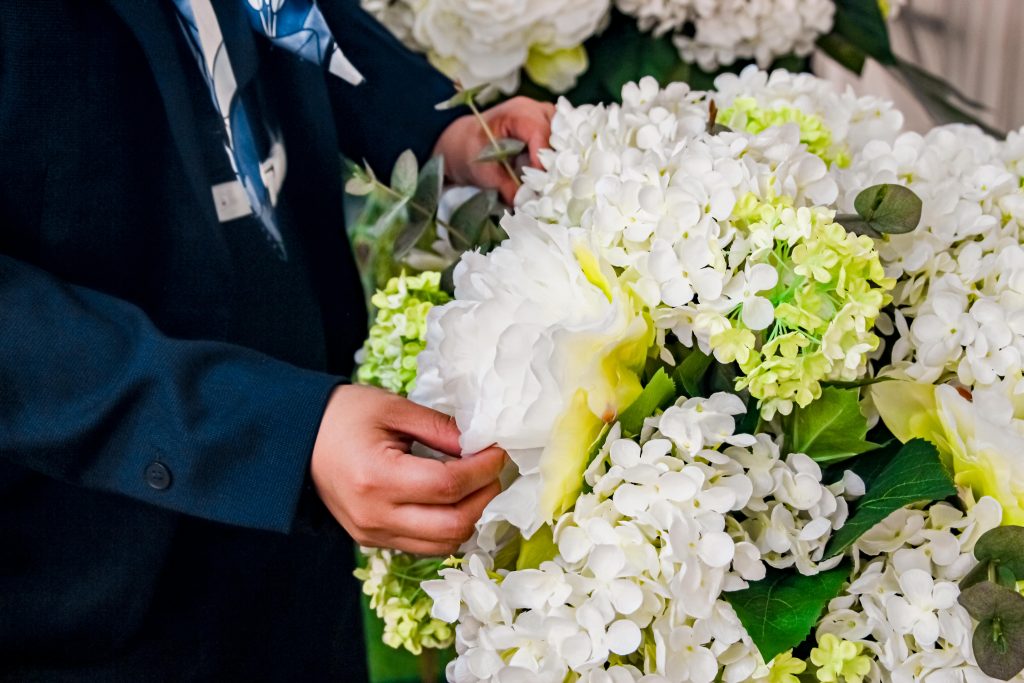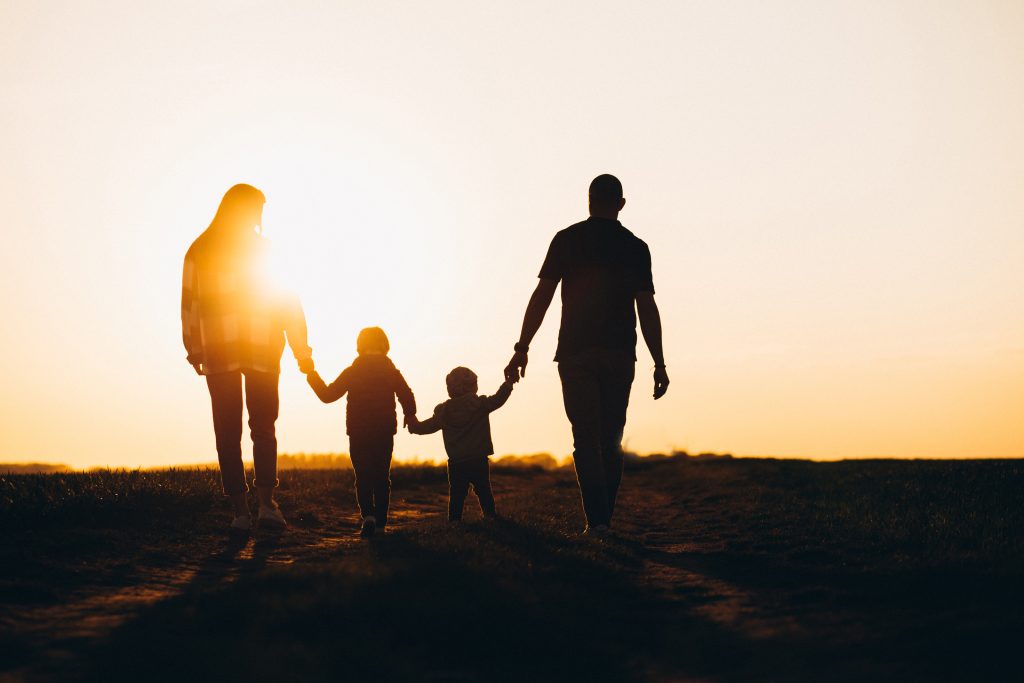It is a given that nearly everyone of us will lose a loved one in this life. Despite going through such devastating blows, we somehow manage to continue living with a gaping hole in our hearts. Coping with grief, be it through a death or a loss of something that meant the world to you, can take a toll on your mental and physical health regardless of how “well” you deal with it. Take it from a funeral home who connects with bereaved and dying individuals everyday – coping with grief and loss is never straightforward, but there are healthy ways to go through it, and you’re not alone.
GRIEF COMES IN DIFFERENT FORMS
What do we grieve over?
Though we normally tie the feeling of grief to the loss of a loved one, we actually experience it in various other forms and sometimes, we don’t even know we’re experiencing it. We mourn the loss of anything that is significant and has deep-rooted meaning in our lives – a pet, a marriage, a friendship or a job we loved, just to name a few. When we are dealt with a loss, we are left to deal with the debris from the crash in any way we can. In an article by Harvard Business Review, David Kessler, a world-renowned grief & social trauma expert weighs in on the happenings in 2020 as bearers of grief masked by shock and confusion, experienced by people of all ages around the world.
During a global pandemic, our sense of normalcy and security is turned upside down. We may even begin to imagine our closest friends and family members falling victim to the virus. Countless working professionals who were already struggling to make ends meet were retrenched without compensation, losing their livelihood and means to provide for loved ones. Even if you or anyone you know hasn’t been infected by the COVID-19 virus, there’s this unshakable fear and uncertainty in the air. This is just one of the multiple different types of grief that humans can experience in a lifetime.
“Anticipatory grief is that feeling we get about what the future holds when we’re uncertain.” – David Kessler
There are different types of grief
On www.whatsyourgrief.com, this piece shares insight on the different forms of grief and how they are perceived by humans. Some of the other types of grief are Collective grief and Prolonged grief. The names are self-explanatory – Collective grief is felt when a group or community endures the same tragedy i.e Natural disasters, war etc. This is unfortunate, but can be a powerful way to grieve as people tend to feel less alienated, and sometimes even empowered, knowing that others are experiencing similar emotions. Prolonged grief is experienced for an extended period of time, where the person finds it difficult to process and cope with the loss, unable to accept it.
The concept of different types of grief is one of the reasons behind us reacting to grief differently as compared to our friends and family members do. Our brains process grief according to our past experiences and instinct, adding on to our own uniqueness. It can also help those who are grieving feel better when they are able to find rhyme or reason to their emotions, which may be overtaking simple tasks such as eating proper meals or spending time on a hobby.
It’s safe to say that each and every one of us reading this article have experienced and lived with some sort of grief. Some of us may be feeling a mix of different types of grief, making things even more difficult and confusing but remember that your grief is yours to take and embrace, learn from and grow through.
WHEN A LOVED ONE IS TERMINALLY ILL
Hearing that a dear friend or family member has been diagnosed as terminally ill is paralyzing and terrifying. The thought that there is nothing anyone can do to heal our dear friends and family from their pain renders us feeling helpless and alone, among other things. Why them? Why do they have to suffer and just wait to die? How are we going to get through this?
Just remember – whatever you are feeling is valid and the only certainty we have is the present, we owe it to ourselves and our loved ones to make the most out of it.
Take things slow and do not blame yourselves. It is understandable if the news renders you speechless and unable to come up with a plan of action. Oftentimes, nothing needs to be said at first. Unconditional support and love conquers all and it is human to feel defeated whenever you see your loved one slowly succumbing to their fate. Sharing your honest thoughts with those around you can be a much-needed release, and you may inspire others to speak their mind as well. This extremely difficult circumstance may cushion the eventual hit of emotions when your loved one dies, but does not diminish the meaning and significance of their life.

Showing support doesn’t have to be extravagant. Thoughtful initiatives speak volumes, such as offering to accompany a loved one to and from their check-ups, asking if they’d like to have a specific snack or meal, or if there’s any item they’re looking to purchase for their comfort or treatment. This act of service shows them that not only are you thinking of them, but you want to be involved with their situation rather than deflect it because it’s scary and daunting. You can hold each other and tide through this time together.
If you are looking to pre-plan a righteous farewell, take a look at our services or contact us for a chat and assistance.
THERE IS NO ONE RIGHT WAY TO GRIEVE
Grieving looks different for everyone
The idea that grieving means heavy, long nights of crying is merely a stereotype and generalisation. It may be the most common, natural thing for many of us but everyone processes these difficult emotions in their own way – and there is no right or wrong way to do so, only healthy and unhealthy ones. Some might fall into anxious or depressive patterns or act out by projecting onto others unlike before. Others may continue going about as normal, internally processing their emotions by keeping to themselves. Most of the time, we don’t realise ourselves slipping into darkness because of work and personal commitments. We all have our own ways of finding comfort in times of distress, and it is important to keep that in mind when you and those around you grieve.
In the midst of grieving, it is possible to develop a dependency on or addiction to vices – where people look for temporary distractions to avoid confronting their emotions. It is important to check in with friends and family, to remind them that they are not alone in this journey and support is within an arm’s reach. The road that addiction leads you down is treacherous and painful for you, and your loved ones. This is precisely why it is important to face your emotions in ways you feel most comfortable and healthy.
Do what feels right or try something new
The arts and sports can be a major source of healing and release. Writing poems, making music, going out for jogs and hikes are just some of the physical ways to channel your emotions into something healthy. There is no definitive guide to follow or step-by-step list on how to grieve and try to move on from a loss, but it is crucial to do so without turning to harmful vices and cheap thrills.
With that said, you do not always have to be doing something to be grieving. The residual sorrow will continue to exist whether or not you’re doing something you love or sitting alone in a quiet room. Life goes on, and you have to take time to take care of yourself.
It’s also important to respect others’ privacy, boundaries and space while navigating this journey. Everyone is moving at their own pace, doing the best they can – you do not have to agree with a friend’s responses or reactions to their grief but you have to honour their space, and be there for them.

HEALING DOESN’T HAPPEN OVERNIGHT
A loss is not something you have to ‘fix’ or move on from to be considered whole and capable of living a full life. Living in pursuit of this fantasy is simply unhealthy and unproductive, seeing that you’d be foregoing your true emotions and short changing yourself of an important process in life. For many, the feeling of having a hole in their life is never replaced or mended, but instead they learn to live with it. As with many things, time works wonders but it does not mean that over the course of months of years, you will miraculously feel 100% again – And that is okay. It is not a linear, straight path. The sadness comes in waves and hits at unexpected times. It can hit you right in the middle of an important work meeting or at a leisurely gathering, affecting your mood and focus. Anything that holds significance to your loss can remain a trigger or reminder years down the road. It is also normal to feel guilty for smiling or letting out a genuine laugh shortly while grieving. Everyone deserves to experience joy and genuine happiness.
Think of the grief with this analogy: The loss you’ve suffered is similar to a volume button on a radio, some days it’s at a very low level and stays that way for days. Everything seems fine. Suddenly, it starts blasting and goes all the way up through to your mind and body, affecting your mannerisms and mood at work, school or even during an enjoyable leisure activity. You may not have full control over the dial but you should not try to suppress it or turn it down completely – just let it be and take things as they come. Trying to control everything will only make it harder on you.
EXERCISE MINDFULNESS AROUND OTHERS WHO ARE GRIEVING
Sometimes, we do not know how to comfort or extend support to those who are hurting. Though you may have known someone for years, you might find yourself unsure of how to act or speak around them during a difficult time – that is why it is healthy to engage in raw, honest conversations with those you trust about setting certain boundaries and acknowledging each other’s pain.
If someone is confiding in you, it is acceptable and appreciated if you were to offer a hug or thank them for coming to you. Some people struggle to open up to others, and it may have taken them a great deal of courage and time to string their words together. Tell them that you are here to support them, refrain from passing judgement and also give them space if that’s what they’d prefer. Do not rush them into healing or finding “closure” as everyone’s process is unique. Though some might enjoy dry humour or jokes during difficult times, others may feel hurt by them. Exercise mindfulness by looking out for those who are uncomfortable in these moments.

Simply put, because each and every human being lives a completely unique life, everyone reacts to grief and loss differently from the next person, and copes in their own way. Our emotions are valid and we all deserve a safe place and ways to heal – however, you must remember that one cannot pour from an empty cup. You must take care of yourself before you can really take care of anyone else. If you are coping with difficult, complicated emotions, go through the motion of processing them and take your time. Mental health is vital in living a full life, do not deny yourself the right to living freely.


